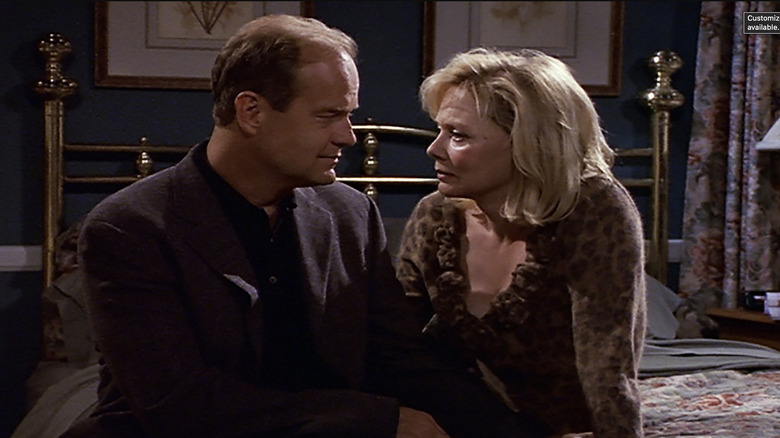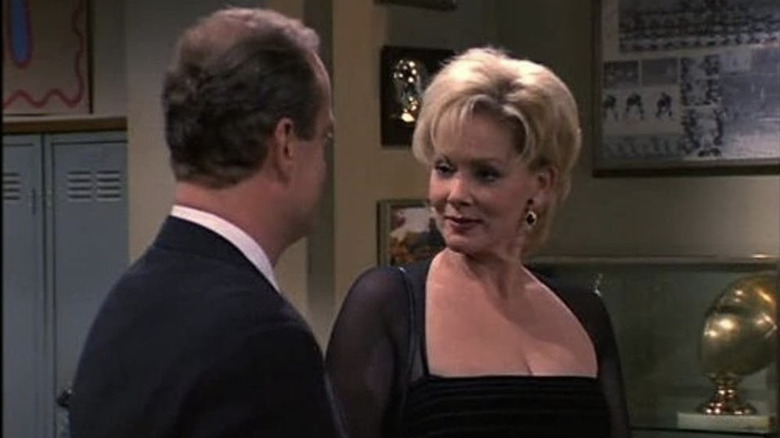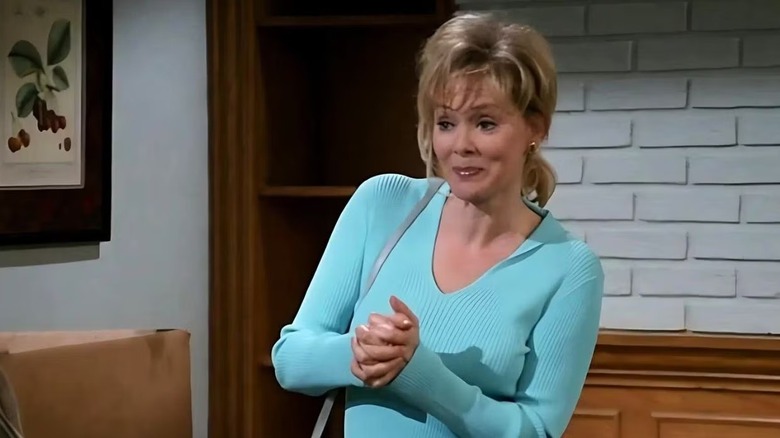
Long-running TV shows can be a blessing and a curse. The blessing part is obvious enough — if a show has run long enough to get past the old marker of syndication (100 episodes), then it must be popular. (TV networks, pre- and post-streaming, are not in the habit of charitably renewing a series whose ratings don’t merit new life.) The longer a show runs, no matter its genre, the more its popularity must be pretty solid. Consider that procedurals like “Law and Order: Special Victims Unit” and “Grey’s Anatomy” have been on the air for literally more than two decades.
But the longer a show runs, the more it can cost to produce (the actors on those shows understand all too well how popular they are and want to be compensated to match). And for guest stars who arrive later in a show’s run, they can find that the atmosphere is a bit closed off to newcomers, whether or not the guest is there for one episode or a handful. One such long-running show would be the original iteration of “Frasier,” which aired on NBC from 1993 to 2004; one such late-arriving guest star is the inimitable Jean Smart. But it’s good to know that for Smart, at least, the experience was exactly as joyous as fans of the Seattle-based sitcom would want.
Smart’s character changed from Lorna to Lana
When she arrived on “Frasier,” Smart was already a well-known figure in the world of TV sitcoms thanks to her co-starring role on “Designing Women” in the late 1980s. Smart, then as she is now, is a luminous, leggy blonde and she was thus well cast as the grown version of the most popular girl from Frasier’s years in high school. Though he’d been besotted with her as a teenager, she’d never had a moment to spare. When they run into each other as adults, he as a well-known radio personality and she as a high-powered real estate agent, it seems initially like love at first sight. All goes well for Frasier and Lorna (as she was originally named) on their first date, which ends with them in bed together.
But the morning after, Frasier is surprised to see that Lorna is as abrasive as she is beautiful, smoking in bed, shouting on the phone to her son, and coming off a lot more aggressively than she did at first blush. Eventually, their relationship hits the skids, but Frasier keeps running into her and ends up having to tutor her outlandishly goofy son Kirby (Brian Klugman). Though the character’s name was originally Lorna Lynley, it was changed after Smart’s first appearance to avoid the fictional character having the same name as a real woman. Afterward, she was known as Lana Gardner. Smart made for a very funny fit on the show, as Lana keeps posing a roadblock for Frasier, who falls for one of her friends after their own romance ends.
And fortunately, it was an opinion shared by Smart herself. A few years ago, while speaking to Entertainment Weekly on the eve of a new season of the FX show “Fargo,” Smart was asked to briefly discuss her time on “Frasier” and spoke well of the experience. “They didn’t disappear into their offices when they were done shooting,” Smart reminisced. “They’d watch each other’s scenes and laugh.” She later talks about how impressive the show’s humor continues to be since it was so deliberately high-brow, but her other comment speaks to a rarity among some long-running ’90s-era sitcoms.
A Smart appraisal of Frasier
For a show like “Friends,” which remains massively popular, the main six actors were so tight-knit that some of the recurring guest actors have spoken about how they felt like outsiders looking in. A good example of this is if you watch this interview on Conan O’Brien’s old NBC late-night show with Paul Rudd on the eve of the finale of “Friends.” Although the actor played the eventual husband of Phoebe Buffay, he talks about how awkward the experience of filming the finale was; even though his tongue is planted firmly in cheek for the majority of the interview, this feels like it’s more than slightly true.
Jean Smart’s career remains somewhat underappreciated, though it’s been very heartening to see her star rise thanks to shows like “Hacks” and “Watchmen,” proving her ability to dive deep into comic and dramatic characters. It’s true that her recurring work on “Frasier” isn’t pushing her too hard, but that doesn’t mean she wasn’t enormously funny. And whether or not it’s leaning into a parasocial relationship with a TV show, it’s somewhat encouraging to learn that Smart’s brief time on the show (she appeared on just seven episodes among the show’s 264 overall) wasn’t cold or unwelcoming when the cameras were turned off. Considering that the end result was a brilliantly funny series that managed to stay relatively fresh for at least seven or eight of its eleven original seasons, that Smart was pleasantly surprised by the friendly atmosphere on “Frasier” almost doesn’t matter. But since some great shows were tendentious and fractious off-set, it’s nice to know that a series whose lead often discussed eschewing rehearsal to sound as fresh as possible (he called it “requisite disrespect”) when the cameras were rolling was open to welcoming any and all of its many esteemed guests.




Leave a Reply